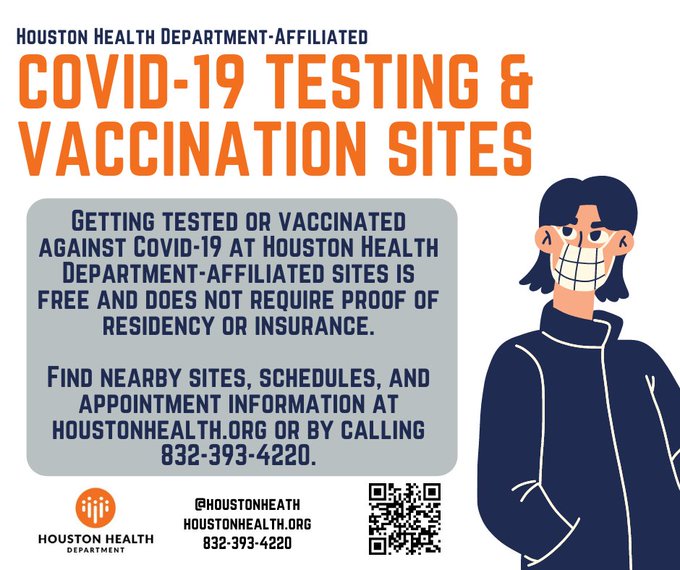
Getty Cars wait in line to get into a COVID-19 testing site at United Memorial Medical Center in Houston, Texas, on July 9, 2020.
Houston health officials are pushing COVID-19 testing and vaccination as hospitals report a surge in cases of the coronavirus exceeding patient numbers at the peak of the Delta variant.
Health officials set the threat level for the area at Level 2: Significant Threat, asking residents to minimize contacts unless fully vaccinated. The threat level has remained at Level 2 for several weeks after it was increased from Level 3: Moderate Threat, as the Omicron variant began to spread throughout the region in mid-December. The COVID-19 data hub said there were 67,491 active cases of the coronavirus as of January 3, 2022. There have been 6,758 deaths, the data hub shows. The number of active cases more than doubled in the last week, but the number of deaths in the same time period was fewer than 50, with testing rates also increasing over the holidays.
Follow the Heavy on Houston Facebook page for the latest Houston news and more.
Here’s what you need to know:
COVID-19 Testing Rates Remain High & Public Health Officials Are Recommending Tests
The Houston Department of Public Health is recommending testing for anyone with COVID-19 symptoms, fully vaccinated people who had close contact with a person with COVID-19 five to seven days after their exposure, and people who are not fully vaccinated immediately after learning they had close contact with a person with the virus. Anyone who is not fully vaccinated and had close contact with a COVID-19 patient and who has a negative test result should be tested again five to seven days after the exposure or immediately after symptoms develop.
Find an HHD-affiliated COVID-19 testing site near you here.
“Getting tested at Houston Health Department-affiliated sites is FREE, and does not require proof of residency, citizenship or insurance. Some testing partners bill insurance,” the Houston Department of Health wrote on its website.
The CDC is also recommending testing as a way to limit the spread of the Omicron variant. There are two types of tests for current infections: nucleic acid amplification tests (NAATs) and antigen tests. These tests will not confirm whether the infection is caused by the Omicron variant.
KHOU 11 reported that locals were frustrated by long lines for COVID-19 testing on New Year’s Day, and that some residents were unable to find at-home tests at stores, leaving the lines as their only option to confirm their infection status.
The Houston Department of Public Health is also recommending that masks be worn indoors in public.
Texas Medical Center Reported More COVID-19 Patients Are Being Admitted to Hospitals Than Ever Before
Texas Medical Center, which collects medical data on the coronavirus in Houston and the surrounding region, reported that there have been more patients admitted to hospitals for COVID-19 in the last week than ever before.
The data shows that there were an average of 401 new admissions of COVID-19 patients per day last week, compared to an average of 201 the previous week. In November, there was an average of 56 COVID-19 admissions per day. The positivity rate at Texas Medical Center was 28% on January 2, 2022, the data shows. The positivity rate at the peak of the Delta variant was 15%.
The surge is causing a strain on local hospitals, KHOU 11 reported.
“Last week, we had over 1,100 staff who had COVID and were unable to come to work on their normal schedules,” Roberta Schwartz, executive vice president for Methodist Hospital, told KHOU 11. “We’ve had to really juggle our staffing and constrain our beds.”
The news outlet noted that about 60% of the hospital’s COVID-19 patients went to the hospital for COVID-19 symptoms, while the remaining admissions went to the hospital for other issues and tested positive. Still, the hospital told KHOU 11 that early data seems to indicate the Omicron variant is much less severe than the Delta variant.
